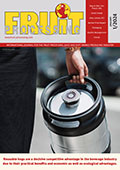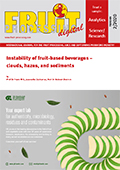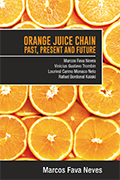Revealed: The exact point at which shoppers will consider a product to be too expensive
Consumers will stop buying a product when its original price has risen by an average of 40 %, according to a new survey commissioned by specialist PR agency Ingredient Communications and conducted by SurveyGoo.

Consumers will stop buying a product when its original price has risen by an average of 40 %, according to a new survey commissioned by specialist PR agency Ingredient Communications and conducted by SurveyGoo.
Just over 1,000 US and UK consumers answered a series of questions designed to reveal just how price-sensitive they really are.1 As many as 94 % of participants said they had noticed their food shopping bills going up in the previous three months, with 79 % stating they believed supply chain problems such as driver shortages were to blame.
Respondents were then asked to select the point at which they would stop buying a selection of food, beverage and nutrition products due to price rises, using a scale of + 5 % to ‘I would buy this product whatever the price’.
Overall, the results indicated that shoppers were more immune to price increases for low-cost staple goods. For example, the category in which consumers were least price sensitive was milk (dairy), which could increase in price by an average of 65 % before respondents would stop buying it. This was followed by bread (62 %) and fresh vegetables (60 %).
Conversely, there was greater resistance to cost increases in nutrition categories, where the base price of products tends to be higher. For instance, respondents said they would stop buying protein powder once the price had risen by an average of 17 %. The corresponding pinch point was 23 % for probiotics, 26 % for dietary supplements, and 28 % for Omega 3 fish oil supplements.
High quality ingredients are key
The survey findings also indicate that consumers are happy to shop around in order to offset the impact of upward price pressures. Nearly half of respondents (48 %) said they had switched to a cheaper brand in the previous three months as a result of price rises, while 26 % said they had changed to a retailer’s own-label version of the same product.
Richard Clarke, Managing Director of Ingredient Communications, said: “For basic goods, even a large percentage price increase might still only be a matter of cents or pennies. By contrast, a small percentage increase in the cost of a premium nutrition product might be measured in dollars or pounds.”
He added: “In such challenging market conditions, brands will need to work hard to retain consumer loyalty. An effective way to achieve this is to demonstrate added value by using high quality ingredients that provide clear differentiation and command high levels of trust, whether that’s through proven efficacy, sustainability, strong co-branding, or a combination of these. These values, communicated effectively, will tie a consumer to a brand more closely, mitigating the impact of price increases on purchasing behaviour.”
1SurveyGoo surveyed 1,063 consumers online in December 2021 (532 UK, 531 US)









